Welcome back to the Planet of the Apes retrospective! In today’s post we’re going to be looking at the finale of the Caesar trilogy and (as of now) the latest entry in the franchise, 2017’s War for the Planet of the Apes! Given the top-tier quality of the previous two films, could Matt Reeves deliver another masterpiece and make the Apes reboot one of the greatest trilogies of all time? Read on to find out…
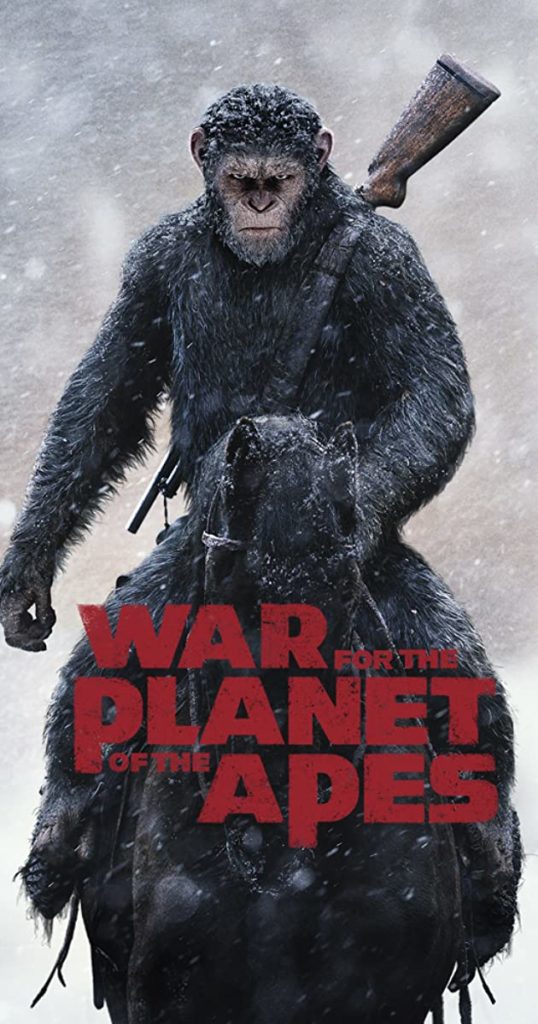
Production
Even before the release of Dawn, plans were being put in place for the third installment in the reboot trilogy. Impressed by his work on Dawn, Matt Reeves was confirmed to be directing the next film and writing it alongside Mark Bomback once more. Unlike the last two films, Rick Jaffa and Amanda Silver weren’t involved in the writing of the story or script and instead served as producers on the project. Reeves and Bomback were also given far more time and leeway so that they could maintain the high quality of the reboot trilogy. In fact, while they initially set the release for summer 2016, they pushed the film’s release date back a full year in order to give Reeves enough time to make the film he wanted.
There’s a post-credits stinger at the end of Dawn which implies that Koba survived his fall at the end of the film. Reeves and Bomback briefly flirted with the idea of resurrecting Koba, but thankfully they concluded that there was nothing that he could add to the story by being alive. THANK GOD. Blockbuster films always try to repeat what already worked, but Koba’s story has been told, dragging it out would be an awful idea. It would be like if Pirates of the Carribean brought back Davy Jones or if Star Wars brought back Emperor Palpatine, but what kind of idiot would do that…?

In May 2015 the title of the film was revealed to be “War of the Planet of the Apes“, but was changed to “War for the Planet of the Apes” by the end of the year (which might be why I kept misspelling the title of this film all through my writing of this retrospective). Andy Serkis was, of course, returning as Caesar once more, while Judy Greer, Karin Konoval and Terry Notary would reprise their roles as the apes Cornelia, Maurice and Rocket, respectively. Tony Kebbell would also return as Koba, appearing in visions to haunt Caesar. Woody Harrelson was revealed to have been cast as the film’s antagonist, while Steve Zahn was cast as an ape and Amiah Miller was cast as a young human character.
Once again, filming took place around Vancouver, British Columbia and Weta Digital provided the film’s visual effects. War grossed $146.9 million domestically and $343.8 million internationally for a worldwide gross of $490.7 million. While less than Dawn, it was once again a solid haul for the Apes franchise.
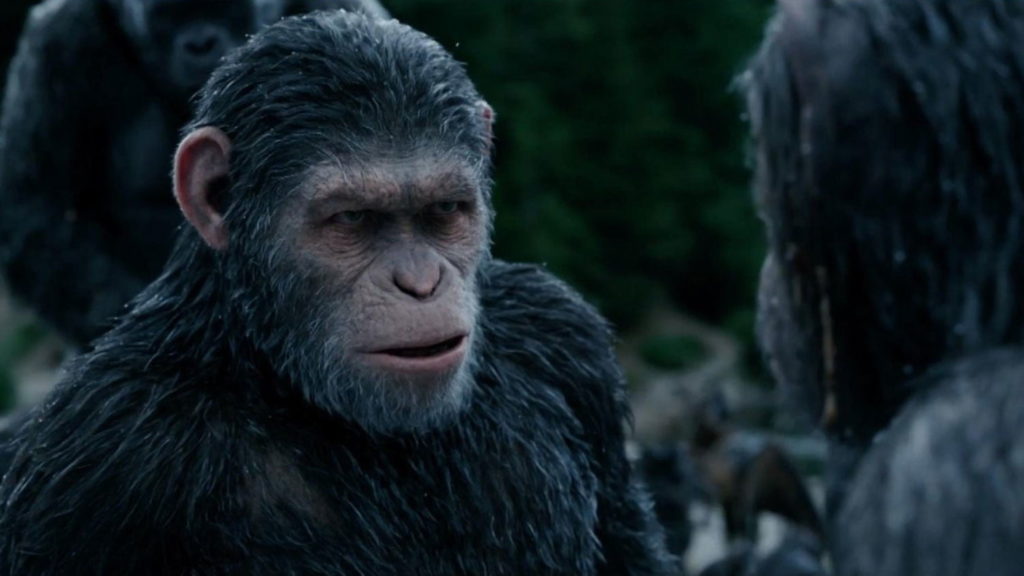
Plot Synopsis
Two years have passed since the end of Dawn. Caesar’s apes and the U.S. military have been engaged in a bloody war. After an attack on an ape outpost is repelled by the apes, the captives are brought before Caesar. Among their ranks is a gorilla named Red, an ape who was loyal to Koba. The humans derogatively refer to these traitor-apes as “donkeys” and use them to help exterminate the other apes. Caesar decides to free the human captives as an olive branch to the Colonel leading the U.S. forces. As the humans are freed, Red escapes, wounding a gorilla named Winter in the process. Shortly thereafter, Blue Eyes and Rocket return to the apes’ encampment and reveal that they have found a new home for the apes across the desert. Winter insists that they need to leave before the Colonel attacks them, but Caesar says that they need time to prepare for the journey.
During the night, the Colonel leads a squad of humans into the apes’ base and executes Cornelia and Blue Eyes, believing him to be Caesar. Caesar is thrown into a rage, but the Colonel escapes before he can be killed. It is also discovered that Winter has gone missing during the raid. Fearing further attacks, the apes begin their journey to their new home, but Caesar decides to strike his own path. He leaves his last son, Cornelius, with Blue Eyes’ wife, Lake, and goes alone to hunt down the Colonel. Rocket, Maurice and Luca follow Caesar and join him on his journey, much to Caesar’s displeasure. On their way to the humans’ camp, they encounter a lone soldier, who Caesar kills when he tries to pull a gun on them. They find the soldier’s young daughter hiding nearby and find that she is mute. They bring her along with them, reasoning that she will die on her own if they do not, and Maurice names her “Nova”.
When the group reaches the humans’ camp, they find that the soldiers are packing up to leave and that the Colonel is already gone. They encounter Winter at the base and discover that he sold them out to the Colonel and that he believes that the humans are going to meet with the rest of the U.S. military to wipe out Caesar’s apes one and for all. When Winter tries to alert the guards, Caesar kills him. The apes then follow the human convoy to try to find their base. Along the way, they find that a group of soldiers are executed and left by the road. One of these humans is still alive and the apes discover that he is mute like Nova.
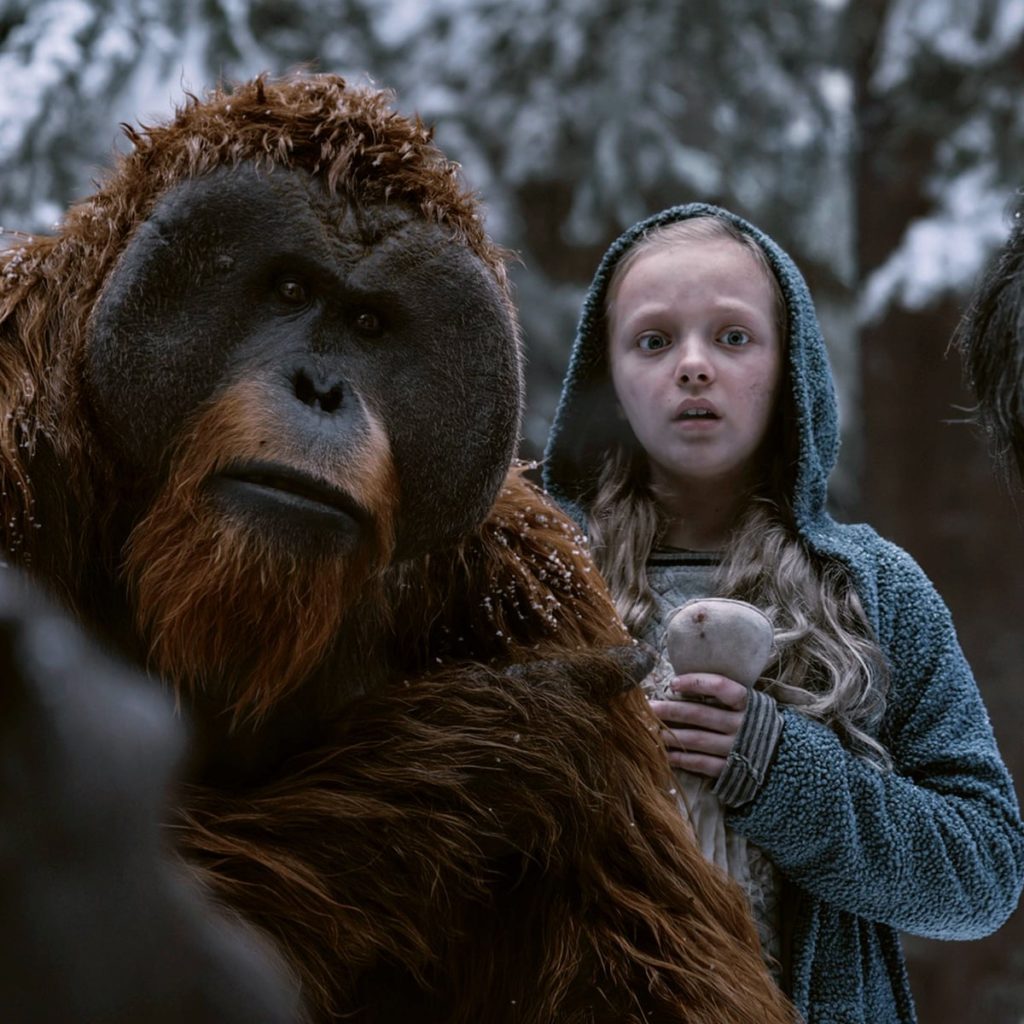
As they move further north, Caesar loses track of the convoy in the snow and they climb a radio tower to try to get a better vantage point. While they do so, a mysterious figure steals one of their horses. The apes give chase and track him down to a ski resort, where they discover that he is a fellow ape called “Bad Ape”. Bad Ape is the first intelligent ape they have encountered who isn’t a part of Caesar’s group, having been mutated by viral exposure to the Simian Flu. Bad Ape reveals that he knows the location of a nearby military base and, after some convincing, agrees to take them there. Caesar and Luca attempt to scout the base, but are spotted by sentries. The sentries are killed but Luca dies in the struggle. Not wanting any more of his companions to die for his cause, Caesar moves on the base alone, but discovers that the Colonel intercepted the ape tribe as they attempted to escape the forest and has brought them all here. Caesar is captured by Red and forced to start building a wall to protect the base along with the other apes. Caesar tries to inspire an uprising, but the Colonel puts this down violently and begins torturing Caesar in punishment.
Caesar is then brought before the Colonel, who reveals that his forces aren’t joining with the rest of the U.S. military – they’re coming to destroy him. The Colonel reveals that the Simian Flu has mutated and is causing humans to regress and lose their ability to speak. In order to halt the spread, the Colonel has been executing any man who develops the mutation, including his own son. Meanwhile, Rocket, Maurice, Bad Ape and Nova discover a sewer system beneath the base and realize they can use it to enact a rescue. Freezing and dying of exposure, Caesar regains his hope and strength when Nova sneaks into the base and gives him food, water and a doll. Fearing that Nova will be found and captured, Rocket strolls into the base as a decoy and is thrown in with the other apes, who begin enacting their escape plan.
The next morning, the Colonel is surprised to find Caesar still alive. He finds Nova’s doll and takes it with him, curious where Caesar got such a thing. The apes then spend the workday figuring out which tunnels will lead into the apes’ cages. They find that they can free the adult apes through the tunnels, but the children will have to be freed above ground. That night, the apes begin their escape and, once freed, Caesar helps the children out of their cage and into the tunnel. However, Caesar once more turns away from his people and goes after the Colonel just as the U.S. military arrives and battle erupts. He finds that the Colonel has been infected with the mutated Simian Flu through Nova’s doll and, seeing the Colonel in such a pitiful state, Caesar is finally able to overcome his rage, allowing the Colonel to commit suicide rather than kill him himself.
Outside, the battle rages between the two human forces and the fleeing apes are caught in the crossfire. Caesar tries to destroy a fuel tank to clear the way for the apes, but is shot by an arrow. Red sees all of this and finally decides to do the right thing. He kills a soldier who is about to kill Caesar and is killed in retaliation. However, the act gives Caesar time to blow up the fuel tank and annihilate the last of the Colonel’s men in the process. The U.S. military then advance on the base and discover the apes. Before they can attack, an avalanche is triggered. The apes flee into the trees and ride out the avalanche, but the exposed humans are wiped out. The apes then regroup and cross the desert to their new home, a sheltered valley paradise. While the apes celebrate, Caesar reveals to Maurice that he is dying of the arrow wound he sustained. Caesar slips away, content that he has led his people to salvation.
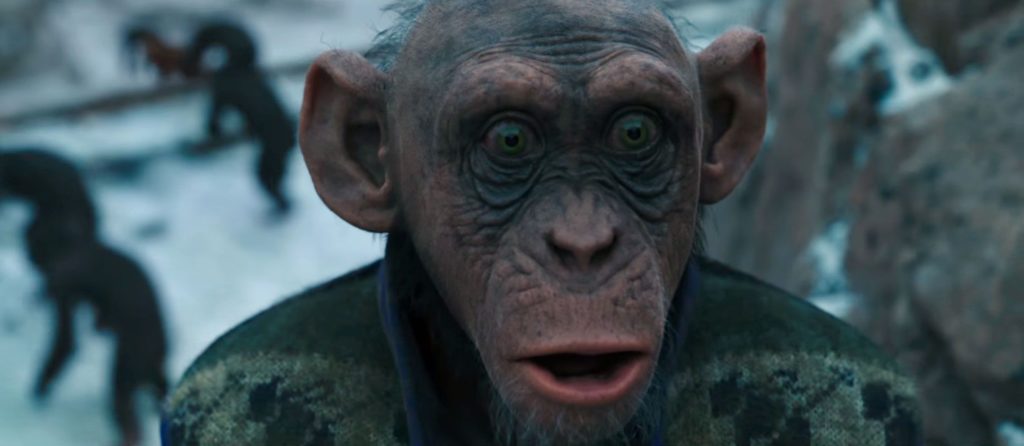
Review
Perhaps it should be unsurprising, but War is a dark turn for the Apes reboot trilogy. There is a persistent grimness throughout the film, which extends beyond the story itself into the film’s muted colour palette. Of course, going grimdark to try to be taken seriously can make your story feel juvenile if not done right, but I’d make the argument that Matt Reeves has crafted the most mature film in the franchise with War. The darkness in this film is less about bad things happening and more about the emotional turmoil which drives Caesar throughout this film. This is somewhat at odds with this film’s marketing and even its title, which promise a climactic showdown between apes and humans similar to Battle for the Planet of the Apes. However, aside from one skirmish in the opening scene and a battle between two human armies which happens mostly off-screen in the finale, War is pointedly uninterested in portraying war as a source of thrills (which is a trap that “war is bad” movies like Saving Private Ryan and Hacksaw Ridge fall into). As fun as it would have been to see this war play out more directly, if we’re being honest what we get in War is far more interesting. Rather, the titular “war” is the one raging within Caesar to determine the course his people will take in the future.
Through Rise and Dawn, Caesar was always an idealistic figure, one who tried to forge the path that would balance what was best for human and ape alike. This outlook set him apart from other apes because he had been raised by them and knew that they weren’t an inherently evil species, whereas Koba had been traumatized by them and viewed them all as a threat. However, when the Colonel kills Caesar’s wife and son after he showed mercy to the Colonel’s men, his idealism is shattered and he is consumed with a desire to lash out in vengeance. Caesar becomes straight-up cold-blooded, gleefully massacring human and ape alike that get in the way of his path to vengeance. He kills Nova’s father in self-defence, but he doesn’t feel any remorse and doesn’t rush to try to talk it out with him. He kills Winter, nominally for trying to alert the guards in the human camp, but it’s obvious that he’s actually doing it because Winter caused his family to be killed. He even starts hallucinating Koba taunting him, reminding him that under Caesar’s own philosophy “Ape must not kill ape”. It becomes obvious that Caesar’s quest for vengeance is fruitless – killing Nova’s father just creates an orphan and his actions are alienating him from his friends and the apes who look to him for guidance. Ultimately though, his ill-guided quest is causing Caesar to lose sight of the bigger picture. This is most clearly demonstrated when a captive Caesar tries to kill the Colonel, who berates him, asking him what he thinks would happen if he succeeded. If Caesar accomplished his goal he would be killed along with all of the apes, but his rage is blinding him from what is actually important to him.
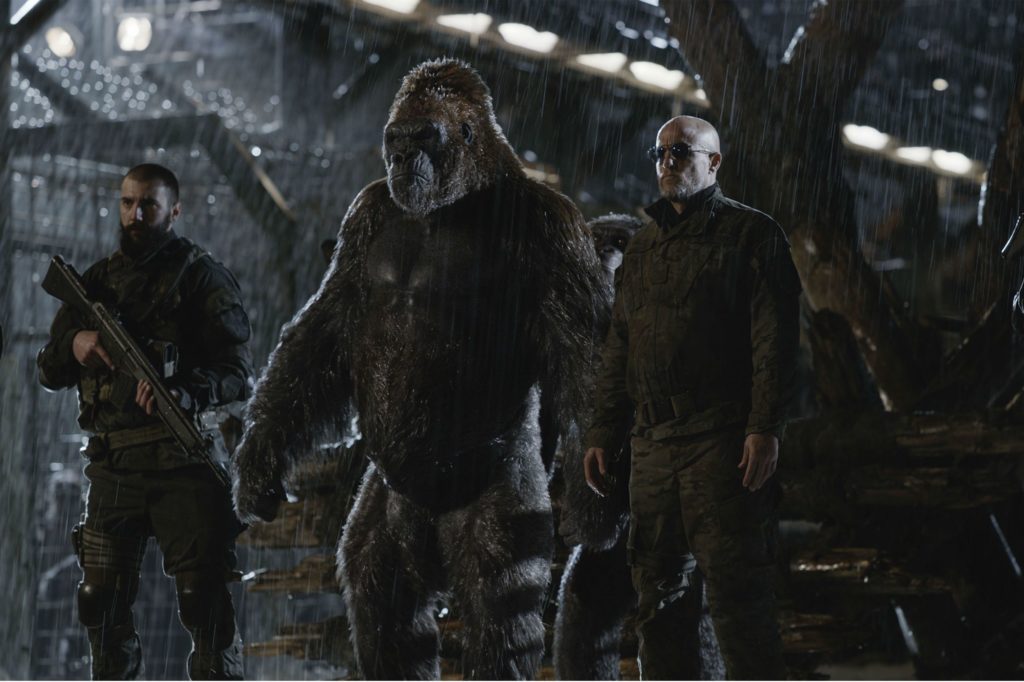
Considering that this film came out during the Trump’s turbulent first year, it’s impossible not to draw parallels between the Colonel’s philosophy and Trumpism (even if Matt Reeves insists that these parallels are unintentional). Like… the Colonel is building a useless wall with the apes as his slave labourers, caging the apes up like an ICE detention facility, and the Colonel develops a nationalistic, fascist cult of personality around his vision of human purity. The Colonel claims to hate the apes because he believes that they will inevitably conquer the world if they aren’t stopped. He also views the speech and cognition-affecting mutation of the Simian Flu to be so dangerous that he killed his own son to prevent it from spreading and “corrupting” his pure humanity. However, for all his bluster about a long-term plan to save humanity, the Colonel has the same short-sighted weakness as Caesar – he is so set in his beliefs that he’ll destroy himself, his men, the rest of the U.S. military and the apes in order to see his ideal of humanity through, expecting divine intervention to see him through in what he calls a “holy war”. Ironically, the Colonel succumbs before his holy war even begins, becoming infected with the mutated virus and is put into such a pathetic state that he has to beg Caesar to kill him. However, Caesar finally overcomes his own short-sighted desires at this moment and relents. However, the Colonel is so set in his convictions that he kills himself rather than become what he would view as “less than human”. As you can see, you could write it off War as a typical “revenge bad” narrative, but I’d argue that it is executed well and at least we get to see exactly why revenge is so destructive and what’s being missed by fixating on it.
Another fascinating aspect of War is dehumanization. The Colonel brands all his soldiers and “donkeys” like cattle, burning their flesh with an “AO” symbol for Alpha and Omega. The soldiers under his leadership are fanatical, excited go to war with the U.S. military to see the Colonel’s will through and are rudderless without his commands. They also dehumanize those infected with the mutated Simian Flu, executing their own comrades who become infected and saying that they’re just beasts. However, Nova shows that those who become infected are still human, capable of compassion, sadness, joy and more than worthy of life – just one that’s different than what the Colonel believes is fundamentally “human”.
The most interesting example of dehumanization in the film though is for characters who aren’t human at all – the “donkeys”. The derisive nickname that these apes have been given is already dehumanizing enough, but the humans treat them as little more than more useful versions of pack mules. The donkeys fear retribution for supporting Koba’s coup, or fear the Colonel so much that they turn to the humans for refuge, aiding in the murder of their fellow apes in order to stay alive. It is reiterated several times throughout the film that this survival is temporary, as the Colonel will surely purge them from his ranks once he has won his war, as there is no place for apes in his vision of the future. In case it wasn’t obvious, this brings some potential racial interpretations of the narrative into play (it is somewhat offensive to suggest that apes would be used to represent blacks, latinos or various other marginalized groups, although the original Apes films did intentionally draw parallels so it’s not without merit). Within this film, donkeys like Winter and Red are viewed as straight-up race traitors, propping up a system which seeks to destroy them (again, pretty prophetic for a film that didn’t intentionally draw parallels to Trumpism). This ties into the theme of short-sightedness that Caesar and the Colonel have, as the donkeys are effectively expediting their own demise for the people that are destroying them. That said, the film avoids the trap of portraying the donkeys as worse than the humans. Obviously the film portrays them as bad for supporting the people killing their own kind and who treat them like garbage, but you get why they do it. Red even gets a whole redemption arc and is sympathetic by the end.
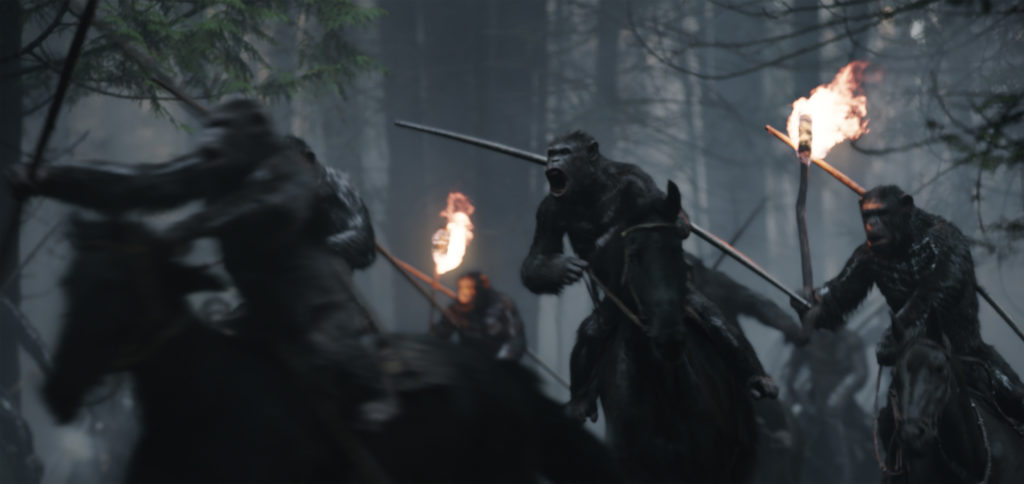
All that said, I don’t believe that War is intended to be a race narrative, although it does have some parallels and borrows some imagery to make its point. Rather, it is intended to be an Exodus allegory. Unlike the Trumpism parallels, this was actually intended by Reeves and Bomback and is even more overt. Caesar is overtly meant to be a Moses figure, from being raised among the humans before leading his own people out of captivity, to intervening when an ape is being whipped, to dying just before the apes reach their literal promised land. There are elements that even feel like they have a biblical grandeur to them, such as the avalanche which buries the human military at the end like it was an act of divine intervention. These biblical parallels seem appropriate for the grandiose conclusion of a trilogy like this, especially since it cements Caesar himself as a prophetic figure whose legacy will carry on through ape society going forward.
War is also buoyed by its characters. Rise and Dawn are often criticized for their boring human leads, but War does away with them almost entirely, only really giving the Colonel and Nova any real prominence. Instead, the apes who have been with Caesar since the beginning are finally given expanded roles (oh my God, you didn’t have to shove a boring human in for us to make an emotional connection!?!). I was giddy when I found out that Rocket and Maurice were going to be part of the film’s main cast, after being disappointed that they were put on the backburner during Dawn (which is particularly egregious for Rocket considering his own son is killed in that film). The ape supporting cast are great. Maurice is such a goddamn sweetheart, always there to lend a wise word and even tells Caesar that he wants to accompany him to make sure that he “makes it back” – both physically and spiritually. Rocket, meanwhile, has grown from the arrogant bully we saw in Rise into Caesar’s most dependable friend, someone who is courageous and defends others selflessly. Of Caesar’s companions, Luca is the most underserved (and hell, was in Dawn but I couldn’t tell you where or when), but at least he gets to display a softer side during a moment of beauty and compassion with Nova before dying moments later. As for the other apes, Bad Ape is certainly the most prominent and adds several moments of much-needed levity to keep things from getting to morose. He also presents some fascinating new developments, being the first intelligent ape to be discovered from outside of Caesar’s group. Apparently the Simian Flu could be transmitted from humans to apes, which caused them to become more intelligent. Inevitably, this means that there are colonies of apes elsewhere in the world just waiting to be discovered. Even beyond the implications of Bad Ape’s existence, the character is a real joy. Steve Zahn is perfect for the role, giving him a strong mischievous personality, but slowly revealing a kind-hearted and truly sad side to the character. Lastly there is Lake, Blue Eyes’ mate who steps up and becomes a leader among the apes when Caesar is on his quest for vengeance. She even saves Caesar’s life with some quick thinking and watches out for Cornelius during the film. I’d say that she is unfortunately undercooked in this film, but there’s enough groundwork laid that I think she’d have a lot of potential in any sequels.
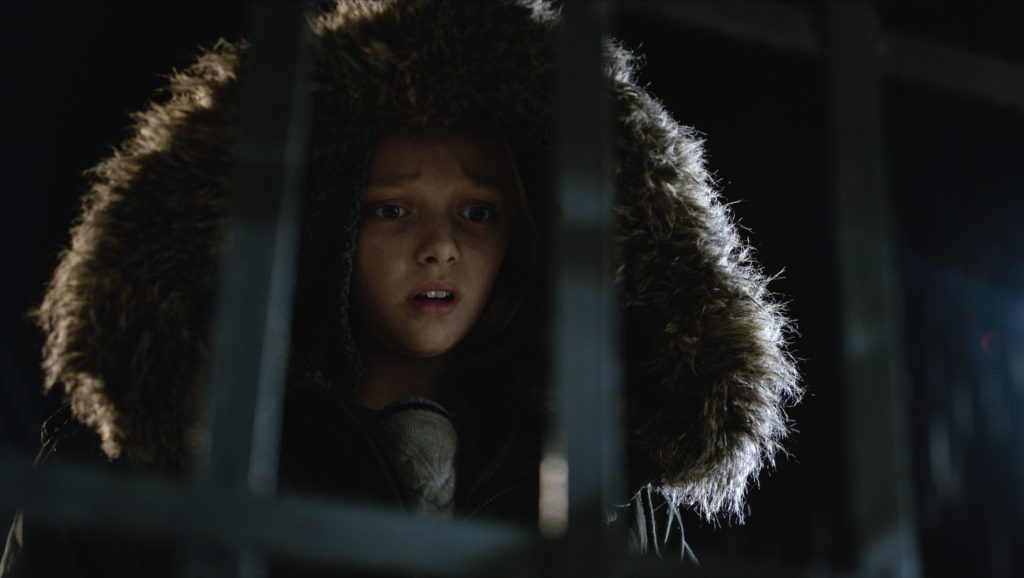
I feel like I’ve said plenty about the Colonel (although I’ll reiterate that Woody Harrelson makes for a great villain, by far the best human antagonist in the reboot trilogy), but I haven’t said much about Nova. For a good chunk of the film, Nova comes across as a burden, a character whose existence only symbolizes how far Caesar has fallen from his ideals. However, as the film goes on she comes to sympathize with her companions and shows that the mutated virus doesn’t make someone less human. When she sneaks into the Colonel’s base and gives Caesar food and water, she takes on an angelic role, restoring a bit of Caesar’s own idealism about peaceful coexistence between humans and apes in the process. She even does an “Apes together strong!” motion, reiterating what I said in Dawn, that the real ideal is “Everyone stronger together!” She’s great, a ray of sunshine in a very dark film.
I also want to note some more elements to this film which are at the top of their game. Andy Serkis puts in the best performance of his career here as Caesar and it’s criminal that he was snubbed during awards season. Reeves’ direction is great once again, ensuring that he will be a sought-after blockbuster director for years to come. Finally, the special effects in this movie are flawless. Dawn had a few shaky moments, but I was actively looking for bad effects in this movie and couldn’t find any. This is likely due to the longer post-production this film was afforded, but the apes look incredible and photo-realistic. Weta really outdid themselves on this film.
All that said, there are a few really annoying issues that I have with War. First of all… goddammit, are we seriously hinging this entire plot on fridging Caesar’s wife and kid? This is especially egregious because Cornelia has been with us since Rise and has done absolutely jack shit (and despite being played by freaking Judy Greer). Similarly, Blue Eyes’ Dawn arc poised him to be a future leader for the apes, so killing him off so early just feels like the character is left underserved. It also makes it really obvious that all of the films in this trilogy were thought up independently, with sequel hooks being used instead of any actual pre-planning. It isn’t a major issue, but fridging is such a lazy, overdone and even offensive trope that it’s disappointing that it was utilized here.
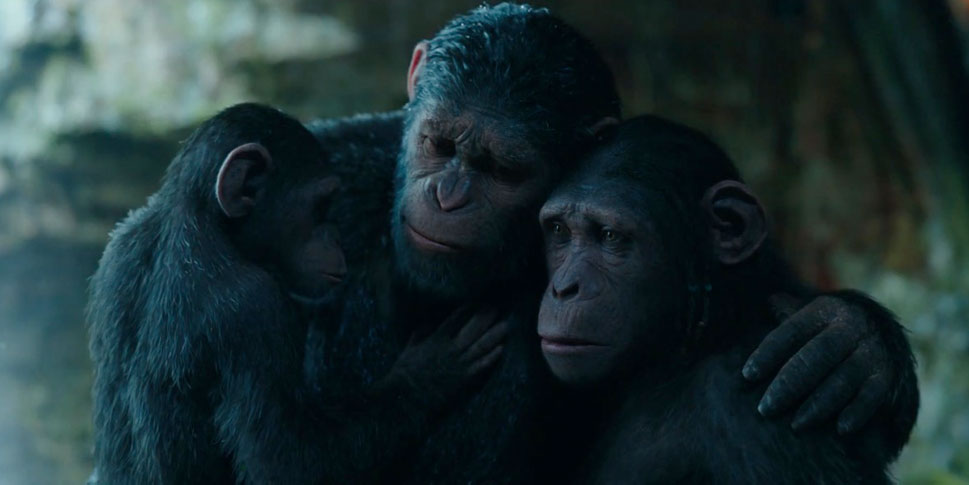
My second issue is that War brings back the overt references to the franchise’s past. It’s not nearly as bad as Rise was, but in Dawn it was a breath of fresh air that they allowed the references to be subtle and organic. On the lighter side of things, we have the Colonel’s “Alpha and Omega” cult of personality, a reference to the Alpha and Omega bomb from the original series films Beneath and Battle. It’s a bit of a strained reference, but at least this one’s a bit creative – instead of just recreating the bomb, this is a more symbolic reference, alluding to the Colonel’s holy war and implying that his movement is destructive enough to doom the entire world. But then on the other side of things… fucking hell, Caesar named his second son Cornelius? Cornelia was already an overt reference to Cornelius, but you had to go and double-down on that exact same reference again? Why? And for that matter why did we have to spend two separate scenes to justify why Maurice would call his human companion “Nova” in reference to Linda Harrison’s character? Does Maurice even know what a nova is, or does he just name people after random car ornaments he is given…? To make matters worse, all these references to Nova and Cornelius have caused confusion amongst some fans who believe that they’re younger versions of their namesakes from the original Planet of the Apes. Well, unless this reboot trilogy is planning on remaking the original film again and moving its timeline up significantly, that is impossible considering that the original film takes place in 3978 (…or possibly 3955). Just… goddammit, give your new characters original names, stop referencing the past for pointless nostalgia!
The final thing which annoys me about War is that the plot begins to strain credulity towards the end. It’s bad enough when Nova just strolls into the military base (which, may I remind you, is preparing for an attack coming any day now) and gives Caesar food and water without anyone noticing. The only way I can justify this is that the Colonel implies that the soldiers may have their children with them and so it wouldn’t be weird to see a random child wandering the base, but we never actually see any so they may not even be at the base at all. On top of that, the avalanche wiping out the entire U.S. military is pretty hard to swallow. Like, sure, it feels like divine intervention, but the fact that the entire military advanced on the base and then managed to get themselves killed to a man in the process is excessively convenient. Even if you could ignore all that, having Caesar dying from a wound he sustained in battle for what must have been a week’s journey across the desert at least, only to have no one notice is ridiculous. Even worse, if they had noticed, someone surely would have been able to treat it and maybe even help him survive, right!? Again, it fits the biblical feel of the story, but it’s overly convenient and feels like it could have been justified better.
Those quibbles aside, I love War. It is definitely my favourite entry in the Apes reboot trilogy and easily cements this as one of the greatest trilogies of all time. For all its darkness, War doesn’t forget to have fun, nor does it revel in nihilism. It ultimately is about hope for a future where people of all kinds can live in harmony together, as Caesar would have wanted.
9/10
So, where does Planet of the Apes go from here? Well, before I get into any official news, I’d just like to give my own ideas for where it could/should go. If there was a direct sequel, I’d like to see Lake’s role expanded, maybe even making her the protagonist. However, I feel like a sequel should be set a hundred or more years in the future, when Caesar’s ideals have already been twisted and humans are being vilified. It’s about time for Apes films to go back to having human characters as the real focal point, especially if the series is aiming to go back to the original. And speaking of which, my ideal, long-term vision for the franchise would be to make an alternate timeline following from the original Planet of the Apes. Back when I was a kid, I imagined that the Apes sequels would deal with Taylor and Nova’s children establishing a new human society and eventually taking back the planet for humanity. I’d like to see this idea play out for real, giving us an alternate timeline where Earth is not destroyed and instead the humans slowly regain their power and fight back against the apes. Given the way that this reboot trilogy has gone, I’d want one sequel where this colony is established and is violently fighting against the apes, only to be driven out in desperation. Then at the end, in a huge twist, have the humans encounter cross the forbidden zone and discover the descendants of Caesar’s ape colony who live side-by-side with humans in peace. After all, Caesar’s living on the west coast, whereas the original Apes is on the east coast, so it would make sense if they are different societies. This would lead to conflict in a sequel since the humans don’t trust the apes and would need time to come to their side, while the apes would struggle to come to the conclusion that they need to come into conflict with other apes due to their divergent ideologies. It would also mean that this trilogy’s message of “Everyone stronger together” would get a chance to actually play out and we could even get a happy ending when this is all said and done.
So those are my pie-in-the-sky ideas for an Apes continuation, but what news have we actually heard so far? Well… remember how I criticized Disney for being a bunch of limp-dick hacks with their franchises earlier? Well… they bought 20th Century Fox and the Apes franchise along with it and have already announced that there are more films on the way which would be set in the same timeline as the reboot trilogy. It has been announced that a new Apes film is in production, directed by Wes Ball of… oh fucking hell, the Maze Runner guy? Well, at least Ball’s film will be following “Caesar’s legacy”, implying that it is indeed going to be set decades after War and will deal with the corruption of Caesar’s ideals. Fingers crossed that he can pull it off and that Disney give this venerable franchise the respect it deserves.
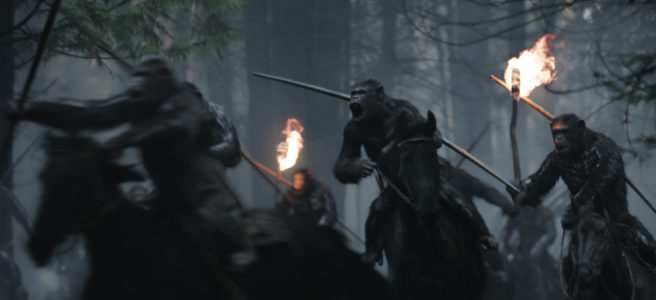
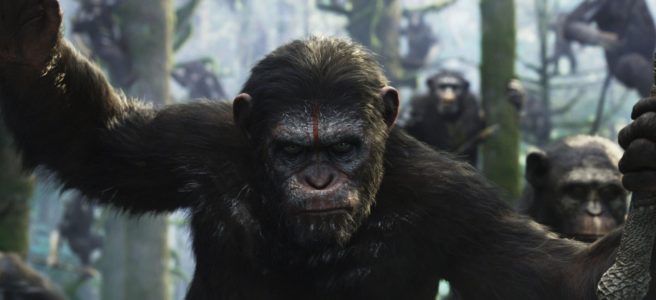
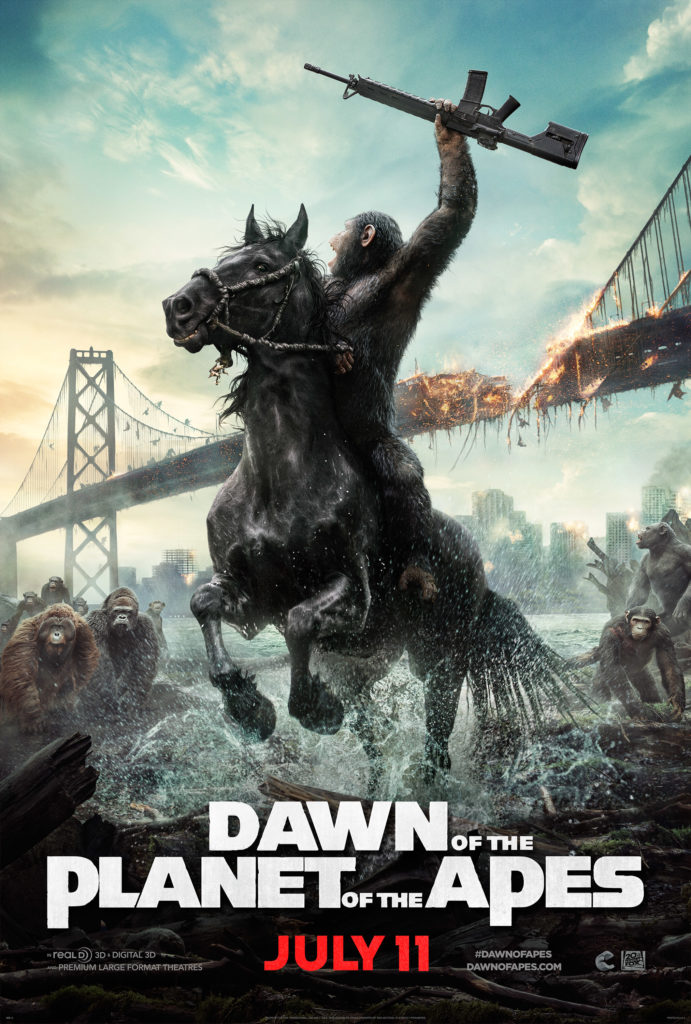
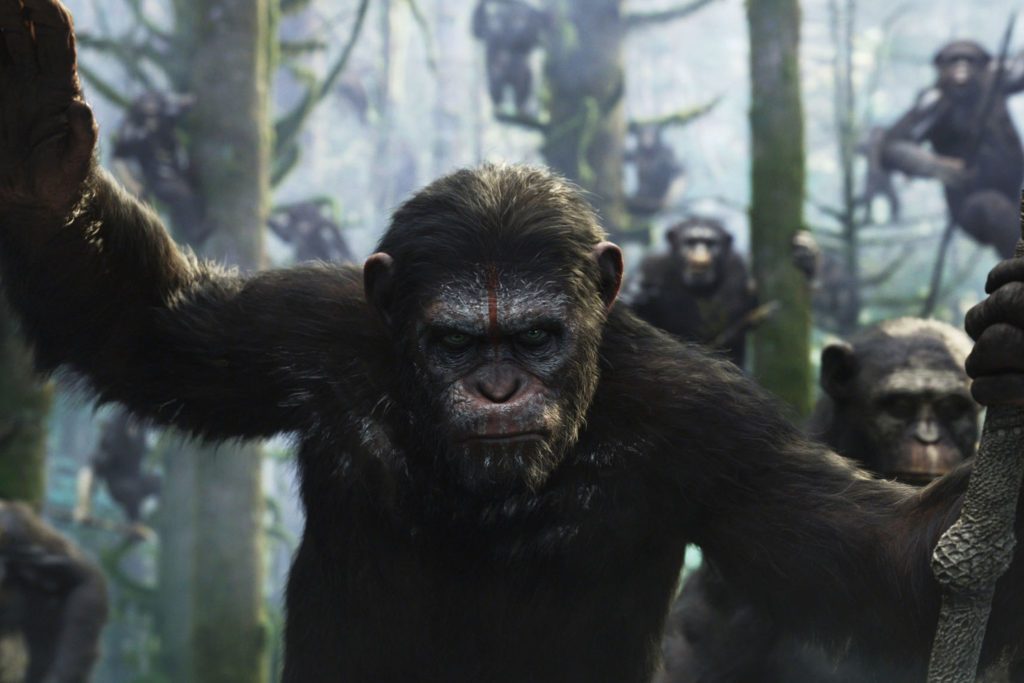
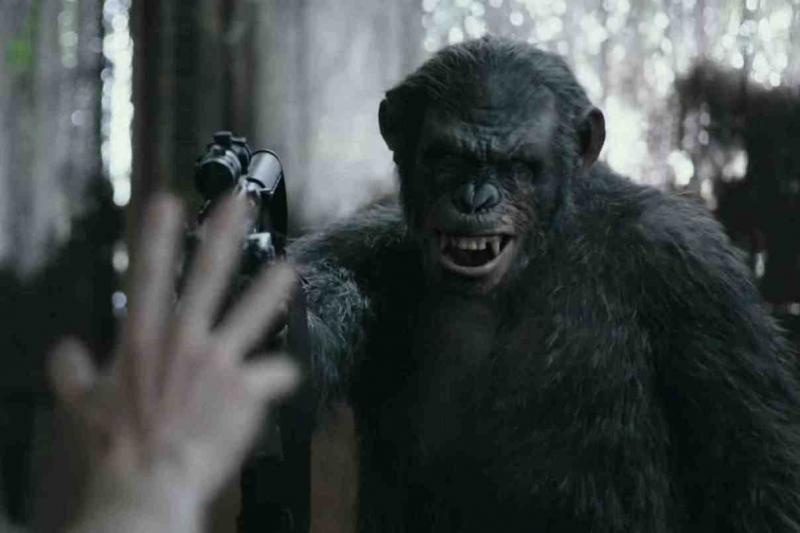
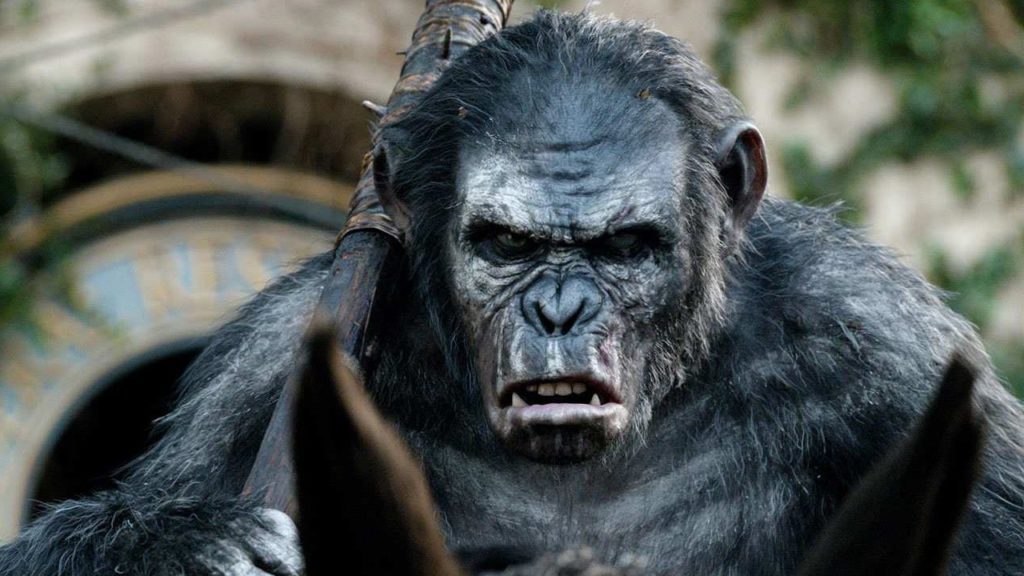

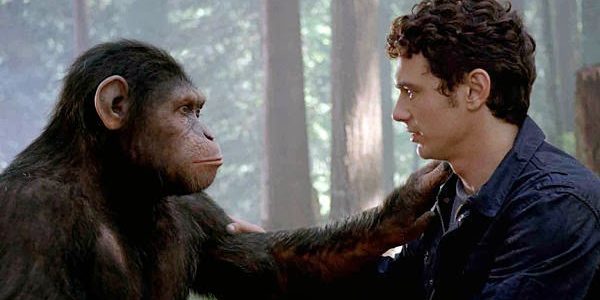



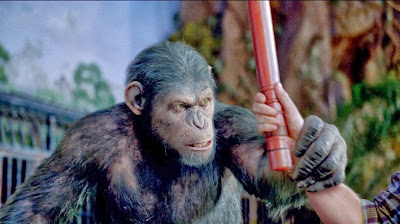


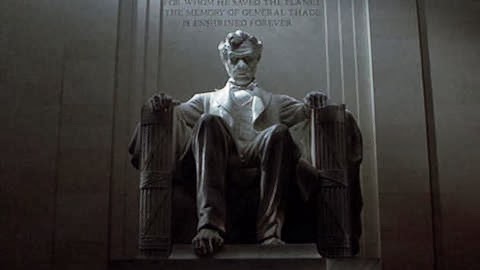






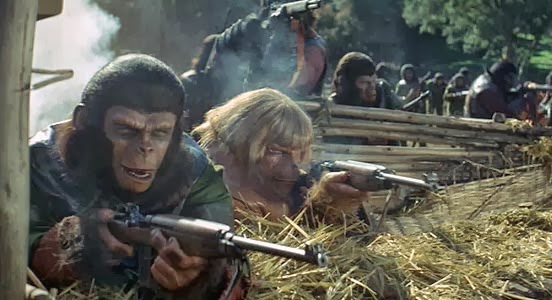
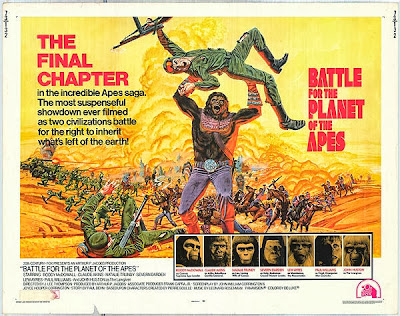



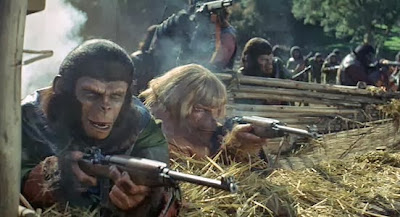

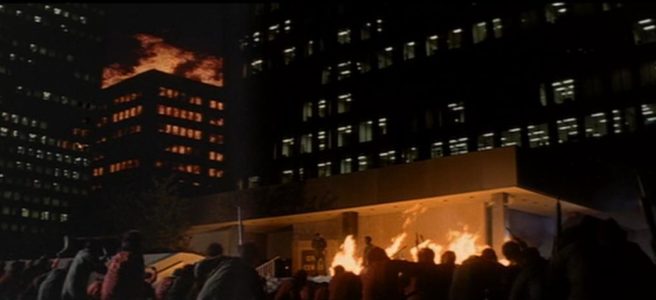







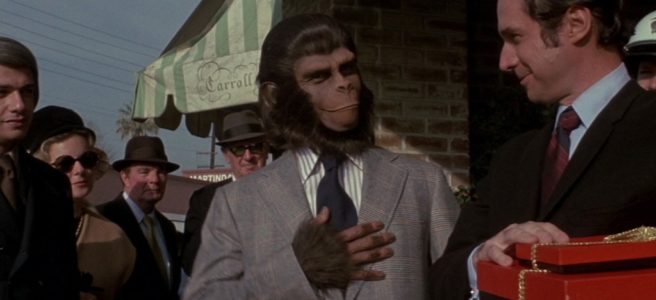





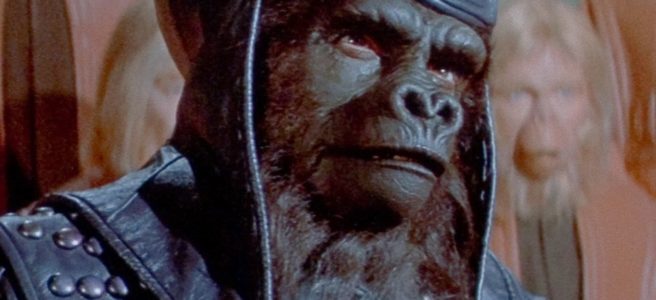










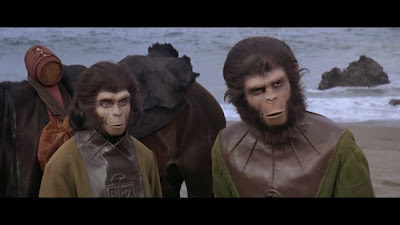.jpg)